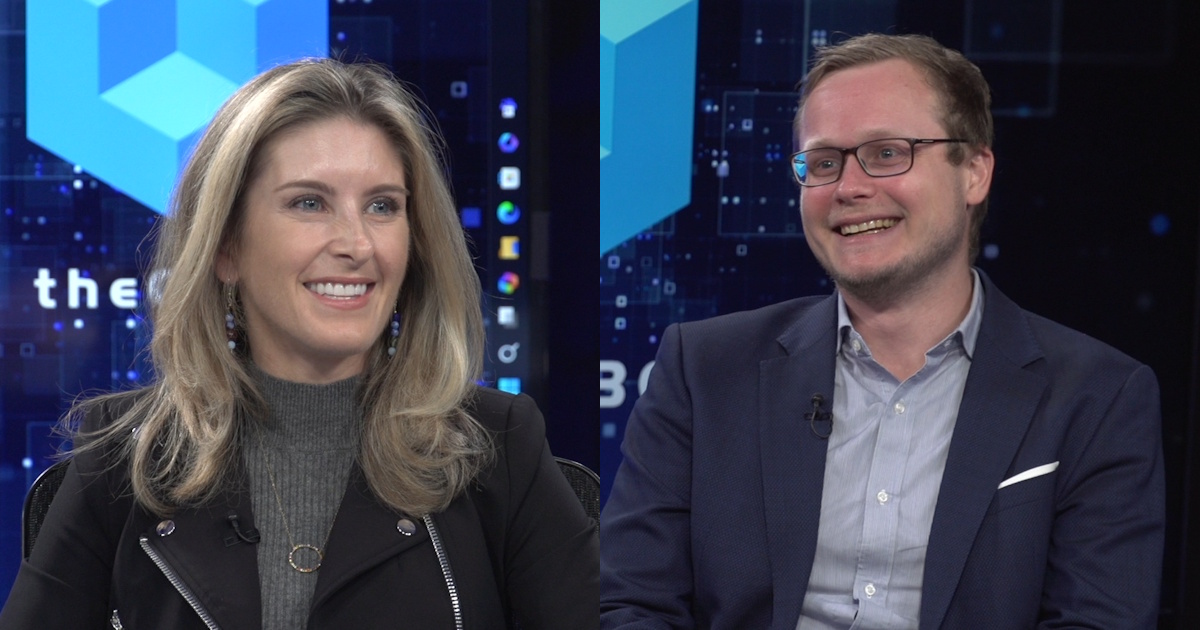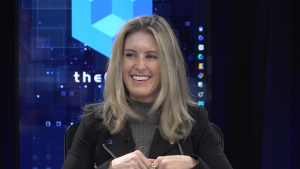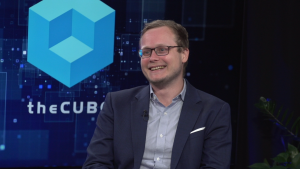 AI
AI
 AI
AI
 AI
AI
As generative artificial intelligence reshapes enterprise workflows, the spotlight is shifting from raw innovation to real impact — especially when it comes to employee experience. For AI to succeed inside organizations, it must empower the people behind the processes.
That’s exactly the aim of ServiceNow Inc. and Accenture DACH in their ongoing collaboration. By weaving AI into everyday workflows through ServiceNow’s cloud platform, the two companies are helping enterprises reduce friction, boost productivity and improve how employees engage with their work.

ServiceNow’s Marcelle Howard talks about AI’s impact on the employee experience.
“There’s a lot of fatigue around [AI],” said Alex Herttrich (pictured, right), principal director at Accenture. “When it comes to ServiceNow and the conversations we’re having … AI is another step after you’ve built a foundation. AI is something that builds on top of the platform. It’s not bringing new tools; it’s rather bringing new capability that helps you automate intelligence on top of your existing processes.”
Herttrich and Marcelle Howard (pictured), director of AI solution success, platform product at ServiceNow, spoke with theCUBE’s Savannah Peterson at the “From Vision to Reality: How AI Is Transforming Work Now” event, during an exclusive broadcast on theCUBE, SiliconANGLE Media’s livestreaming studio. They discussed integrating ServiceNow’s platform with current business practices and crafting the employee experience. (* Disclosure below.)
ServiceNow’s platform is scalable and can deliver results in as little as three to six months, according to Howard. The company’s goal is to deploy across hundreds of processes and disciplines in a customer’s business, providing a unified, real-time data layer with its recently announced Workflow Data Fabric.

Accenture’s Alex Herttrich talks with theCUBE about the evolving employee experience.
“[Accenture’s] platform really has a very substantial impact with our customers,” Howard said. “It has allowed for the orchestration of many different flows, many processes to take place across several different disciplines. There’s a lot of different dimensions in which the platform can play into, but it integrates a lot of the different legacy systems and ways in which work can come together.”
ServiceNow also announced a series of agentic and gen AI enhancements on its Now Platform. The collaboration with Accenture is focused on delivering those valuable tools to customers and working with businesses to decide what needs to be implemented now versus later.
“The best case scenario is when you can optimize customer value, if you develop this vision of: I need these people to be freed up because they’re our best tech engineers, and I need them to do development or have my best customer service agents … actually do customer outreach and create customer value instead of working on a more reactive customer service operation space,” Herttrich said.
Employee experience is a category that is gaining traction in enterprise, according to Howard. She hopes that AI will eradicate rote tasks for employees, allowing them to work on more critical projects.
Gen AI is also becoming more ubiquitous outside of the enterprise space, which Howard sees as an opportunity for improving the workspace.
“This is really the first time we’ve interacted with AI on a consumer grade level to the extent in which we have,” she explained. “People’s grandparents are using it to get facts and information. People’s kids are using it to help with homework … as opposed to this concept of AI is just taking over. It’s really how do we incorporate this to strengthen the impact that people and humans can make in their jobs.”
AI companies also have to account for “change fatigue,” Herttrich and Howard emphasized. Employees need to receive truthful communication so they don’t feel “railroaded” or disregarded. If businesses have to contend with too many changes at once, they can be reluctant to implement new technology, so having a straightforward integration process will be key.
“The ultimate definition of success is when [AI] just becomes invisible in the fabric of that experience,” Howard said. “Where AI disappears is really end-state, but the practicality and the work you need to do, the greediness to get there I think is really what’s happening and taking place today so that can be possible in the future.”
Here’s the complete video interview, part of SiliconANGLE’s and theCUBE’s coverage of the “From Vision to Reality: How AI is Transforming Work Now” event:
(* Disclosure: TheCUBE is a paid media partner for the “From Vision to Reality: How AI Is Transforming Work Now” event. Neither ServiceNow Inc., the sponsor of theCUBE’s event coverage, nor other sponsors have editorial control over content on theCUBE or SiliconANGLE.)
THANK YOU